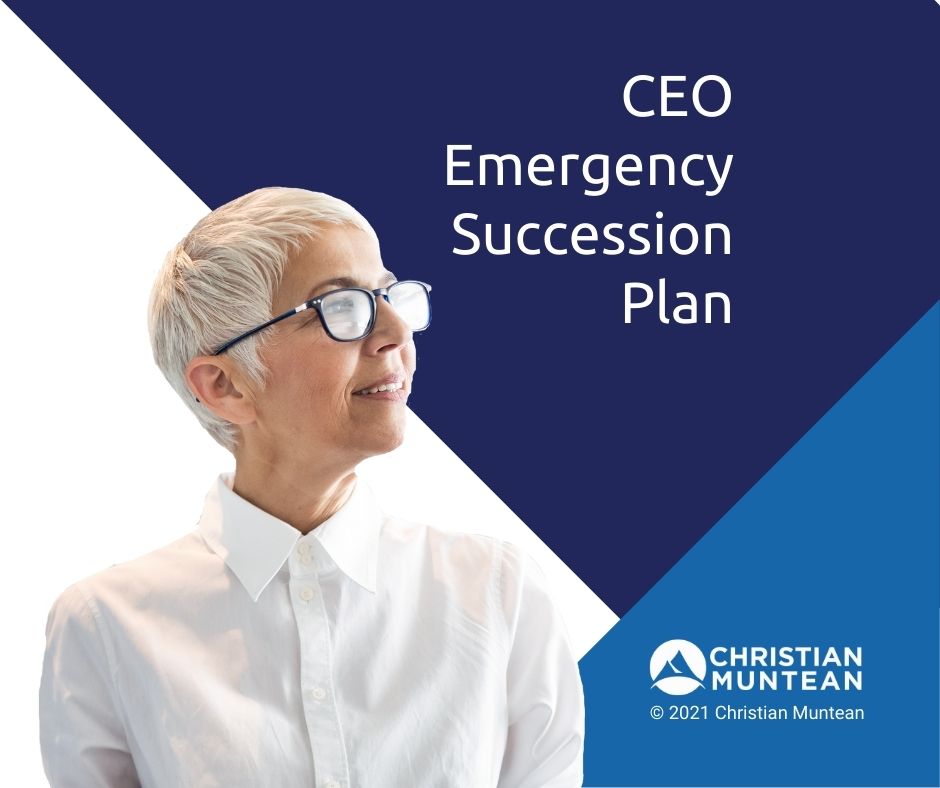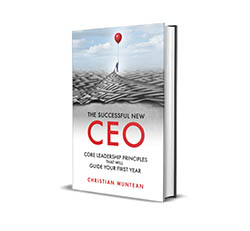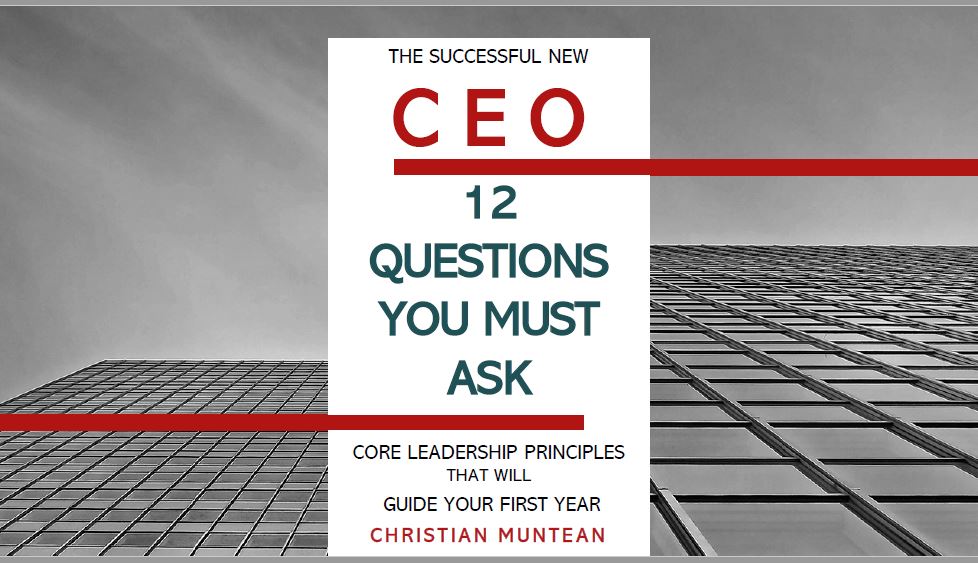How to Become the Kind of Person Who Naturally Is an Excellent Leader

Not too long after we found that my wife was pregnant with our first child, we started the naming project. I immediately began to overthink it.
it.
How do we pick the name that he’ll carry around for the rest of his life? What if we pick the wrong name? What identity are we saddling him with?
Then I realized something: Our son would, over time, give his own name meaning. He would create his own reputation and identity depending on how he lived his life and related to others.
Sure, he inherits some identity because he’s our child. And my wife is half Inupiaq so he also has an Inupiaq name. Culturally, his Inupiaq name gives identity and carries meaning in a way that doesn’t have an equivalent in American culture.
But even in that community, over time, he will take his name and give it his own meaning (to himself and others) through his choices and actions.
Our Identity Was Initially Given To Us
Charles Horton Cooley, an early sociologist observed, “I am not who you think I am; I am not who I think I am; I am who I think you think I am.”
Cooley is known for his concept of the, “Looking glass self”. That is: Our sense of identity is shaped by the reflection we see of ourselves in the eyes, words, or actions of others.
This is particularly true when we were growing up. Our families and communities of origin shape how we see ourselves. Later, our careers, our friendships, our hobbies, and the families we create continue to reflect back to us an understanding of who we are.
Two Choices for Leaders
When leaders discover this dissonance between the identity offered to them and the one they have – they have two choices.
One choice is to remain as is. This means responding by either ratcheting down their ambition or playing a complicated game of image management.
Some leaders with potential will always find reasons to avoid going to the next level or pursuing an obvious opportunity.
Others want the standing that comes with the new position – but they don’t feel like they fit it. So, they work hard to buttress and protect their reputation. They may overcompensate. They carefully construct walls so no one gets too close.
Leaders who are “alone at the top” are often making this response. Their isolation is growth avoidance. They have achieved some level of success. Sometimes a significant level. But they delude themselves into thinking no one has ever dealt with their challenges or complexities.
So they isolate and stop growing.
Both responses are common. Both limit potential. Both contribute to poor leadership decisions.
The other choice is to grow. For leaders to examine their self-image and determine, “Is how I see myself serving me (and others) well?”
In many cases, the answer is, “Yes” – but only up to this point and no further. It got the leader here. But it won’t get the leader there.
Growth is needed.
Organizational growth is often tied to the personal growth of the leader.
If all of this seems complicated – let’s just call it maturing. Some people keep growing, evolving, expanding, and deepening over time.
And some don’t.
But the leaders who do leadership the best are constantly becoming. Not because their identity is wrong. But just because growth requires taking on new things and letting go of old things.
And they don’t leave what they will become to chance. They don’t leave it up to others. They choose who they are growing into.
Identity matters for leaders, because our comfort level with growth and change translates directly into our ability to help others grow and change. Our ability to help others grow determines our ability to grow our teams and organizations.
As I often say: Leadership development is personal development. Personal development is leadership development. As leaders, we (ourselves) are our most important tool.
How to Change (or Upgrade) Your Identity
What do you value? Your actual core values drive how you see yourself. If you haven’t defined these, do so. You likely have many values. But for everyone, a few (usually 3-5) consistently rise to the top. These are your core values.
Who do you want to be? There are many ways to approach this. How do you want to see yourself? If you were fully living into your values – what would your life look like? How do you want to be experienced and known?
I find it helpful to think through these questions in major life categories. Some suggested ones:
- Who do I want to be spiritually?
- Who do I want to be in my family?
- Who do I want to be in my career?
- What contribution do I want to make with my life?
- Who do I want to be with my friends?
- Who do I want to be in my community?
Identify success behaviors that are in alignment: The questions here are around, “How do I become this kind of person?”
- What are the behaviors or habits that the “future me” uses to create and sustain success?
- What do I change?
- What don’t I stop or let go of?
Surround yourself with mirrors of who you want to become: Growing up, we had the default mirrors of family, school, and community. Most of us have identities based on the memory of those mirrors.
As adults, we can choose. Identify and find ways to spend regular time with people who are like who you want to become. People who already have the qualities you want.
As you spend time with them, pay attention to their success behaviors. Retool yours (above) if needed. Let their perspectives influence yours. I’m not suggesting that you mimic them. I’m also not suggesting that you pin your whole identity on one person.
I am saying surround yourself with people who are like who you want to be. They’ll encourage you and pull you forward.
You may need to make changes for this. You may need to travel for it. You may need to pay for it.
I regularly heavily invest in these relationships. I travel to spend time with people who help me grow. And it works.
Remind yourself regularly. Retool your subconscious.
High-performing leaders do this kind of work regularly. They are very intentional about these things and actively work to nurture this kind of growth.
Personally, I’ve written a short description of my “future self”. I read it every morning. I’ve done this for years. It’s a powerful practice.
There is nothing magical about this.
It is a daily reminder to me of who I am becoming. The repetition drills it into my subconscious. It helps me recognize behaviors that are or are not in alignment with my “future self”. This helps me adjust towards alignment and grow in the direction I want.
Embrace Your Victory
A friend I went to high school with started a successful political consulting group. Their tagline is, “Embrace Your Victory.”
I love it. I love the image of needing to actively take hold of this thing that all leaders want.
This is more about becoming the kind of person who is victorious than learning the tactics and skills of victory. Both matter. But becoming matters more.
And far fewer leaders do it.
Embrace your victory.
Take good care,
Christian
𝗧𝗵𝗲 𝗕𝗲𝘀𝘁 𝗧𝗶𝗺𝗲 𝘁𝗼 𝗖𝗿𝗲𝗮𝘁𝗲 𝗔𝗻 𝗘𝗺𝗲𝗿𝗴𝗲𝗻𝗰𝘆 𝗦𝘂𝗰𝗰𝗲𝘀𝘀𝗶𝗼𝗻 𝗣𝗹𝗮𝗻 𝗶𝘀 𝘽𝙚𝙛𝙤𝙧𝙚 𝗬𝗼𝘂 𝗡𝗲𝗲𝗱 𝗜𝘁.
Be prepared for a smooth transition in the event of an unplanned emergency succession. My guide will show you step-by-step how to devise your own plan.
Free Leadership Resources
Whether you are a new CEO, thinking of succession or exit, or wanting to strengthen your leadership and your team, I’ve got resources to help:
Enhancing your leadership skills
Are you interested in learning more about becoming a successful CEO? If so, get a free copy of my book The Successful New CEO. Not a new CEO? I’ve been told by “old hands” that they felt any CEO should read this. So, click here to get your copy today.
by “old hands” that they felt any CEO should read this. So, click here to get your copy today.
There are 𝟭𝟮 𝗰𝗿𝗶𝘁𝗶𝗰𝗮𝗹 𝗾𝘂𝗲𝘀𝘁𝗶𝗼𝗻𝘀 to ask before accepting a new CEO position. Do you know what they are? Instantly download my free e-book here.
Let’s connect.
I’m passionate about helping leaders to create workplaces they love going to and increasing the value of the services they offer. My results-oriented approach is tailored to each client’s specific situation and needs. As a leadership coach, I have developed a wealth of resources to help you and your team grow and become stronger.
Weekly Newsletter – sign up to receive my weekly articles addressing critical leadership challenges and issues.
The Leadership Coach Podcast – In my podcast, we explore effective, high-impact, and enjoyable leadership. Subscribe.
Find the value of your company with my free assessment tool: The Value Builder System
The Value Builder System™ is a 13-minute online questionnaire that evaluates your business on the eight factors that contribute more to its attractiveness and value. These factors are scored on a scale of 1-100. Businesses that score over 80 are likely to command 70%-100% higher value than others.
Opportunities
Executive and Leadership Coaching: Do you feel overwhelmed? Are you not getting the results you expect from the effort you are putting in? Do you find yourself facing similar challenges time and time again? Would you like to change specific ways of relating or reacting? If you would like to experience predictable, measurable growth Contact me.
Profitable Exit Strategy Workshop: Are you a business owner or partner? Over 55? Starting to think about exiting your business or active management in the next 3-5 years?
- Curious about what your business might be worth?
- Would you like to discover the specific steps you need to take to increase its value and become highly attractive to a buyer?
- Are you planning on handing it over to family or employees and you want to ensure long-term success?
If so, contact me now
Article Categories
Popular articles

Download my free 10-page eBook:
How To Accomplish More Without Doing More:
Eight Proven Strategies To Change Your Life
Discover how to save eight hours during your workweek-even if you're too busy to even think about it. The resource every maxed out executive needs.

